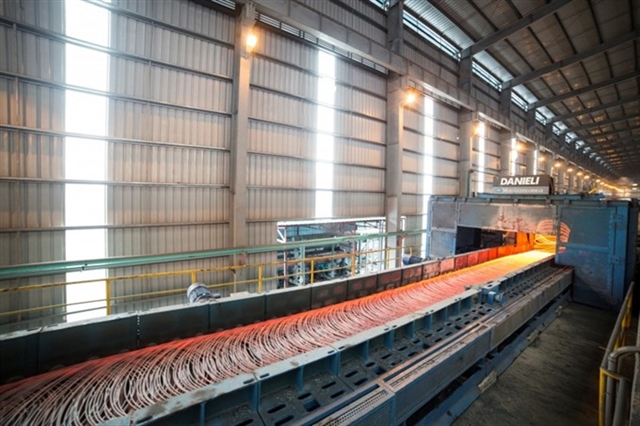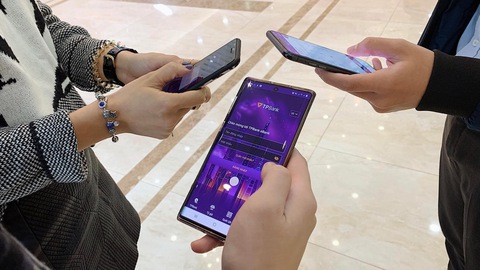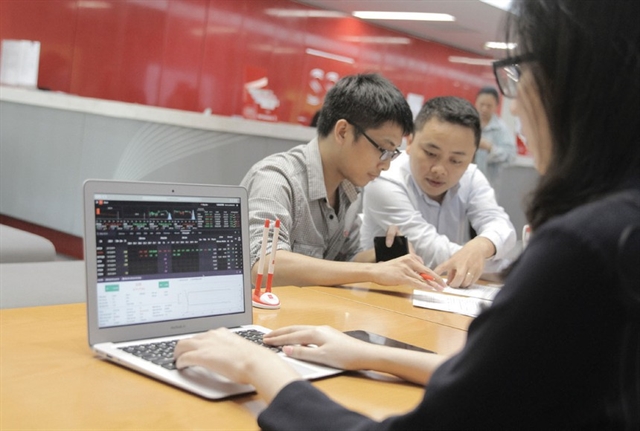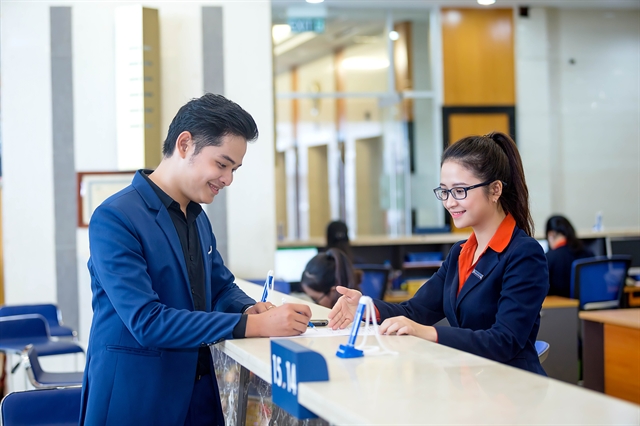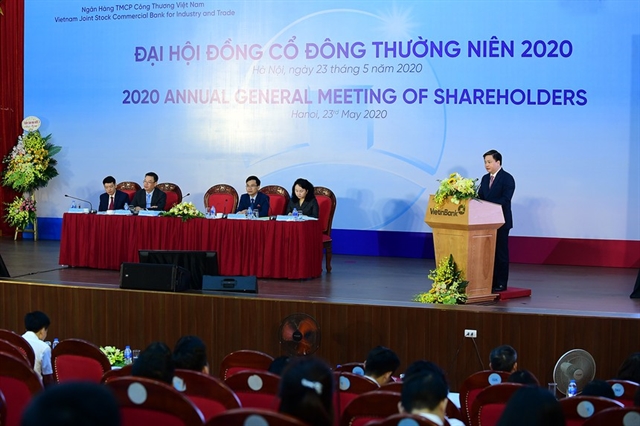
HÀ NỘI — VietinBank (VTG) planned to increase its equity capital from its accumulated profits or paying dividend by stocks. The plan is being completed by the competent State agencies to complete the legal procedures for implementation.
Lê Đức Thọ, chairman of VietinBank’s Board of Directors, made the statement at its 2020 annual general meeting of shareholders held in Hà Nội on Saturday.
“The capital raising requirement of VietinBank is extremely urgent. Unlike other commercial banks, VietinBank could not raise capital through additional issuance solutions to investors due to its limitations: State ownership in joint stock commercial banks having State capital must not be less than 65 per cent while the foreign investors' ownership percentage is a maximum of 30 per cent," he said.
This year, the bank was assigned a credit growth limit of 8.5 per cent by the State Bank of Việt Nam (SBV). However, if the economy sees a good recovery, Vietinbank would submit to increase the limit.
VietinBank expected outstanding loans to grow by 4 to 8.5 per cent in 2020. The mobilised capital would grow in line with the use of capital, balanced with the growth rate of outstanding loans, expected at 5 to 10 per cent. Meanwhile, the non-performing loans (NPL) ratio would be controlled at less than 2 per cent.
The bank has not set a specific profit target this year, but affirmed to ensure business effectiveness and improve its operation. It will closely follow changes and impacts of COVID-19 to update its profit plan based on the approval of authorities.
VietinBank clarified tasks in the restructure plan and resolving bad debts in the 2016-20 period, improving profitability and renewing business structure, customers and managing growth quality.
VietinBank would meet requirements of Basel II as soon as it completes the equity capital increase. Especially, it would complete the development strategy in 2021-30 and middle-term business plan in 2021-23 . It would continue to restructure credit categories, increasing the portion of small-and-medium sized enterprises and retail segments while diversifying revenue structure.
“As the global and domestic economy faces many challenges, the whole system of VietinBank will implement practical and effective solutions to support businesses and people to overcome difficulties, having breakthrough developments after the COVID-19 pandemic,” the chairman said.
Responding to shareholders’ questions about bad debt, he said that it was difficult to predict the impact of COVID-19 because the pandemic had not been controlled. Influence from other countries would greatly affect an open economy like Việt Nam.
The bank has implemented necessary support measures to accompany customers to stabilise production and business activities, offering many support programmes.
However, many customers of VietinBank are affected by decreasing incomes, affecting consumer loans, business and production.
VietinBank’s capital adequacy ratio (CAR) has been at 10 per cent according to Basel I and 8.6 per cent according to Basel II which is under SBV’s stipulated level.
The bank estimated that its profit would reach VNĐ6 trillion by the end of the second quarter of the year. The bad debt rate would be controlled at 1.5 per cent.
VietinBank bought VNĐ3.1 trillion from Việt Nam Asset Management Company (VAMC) while the company still owned over VNĐ9 trillion, of which over 50 per cent has been set aside.
The meeting dismissed the position of members of VietinBank Board of Directors for Hiroshi Yamaguchi and Hideaki Takase at the proposal of Tokyo-Mitsubishi UFJ Bank (MUFG Bank).
It voted three members into the board in 2019-24 period including Masahiko Oki, Deputy Head of Planning Department at MUFG and deputy general director of Vietinbank, Shiro Honjo, MUFG's executive staff, head of global commercial banking planning and Nguyễn Thị Bắc, Head of Risk Management Division at Indovina Bank. — VNS


